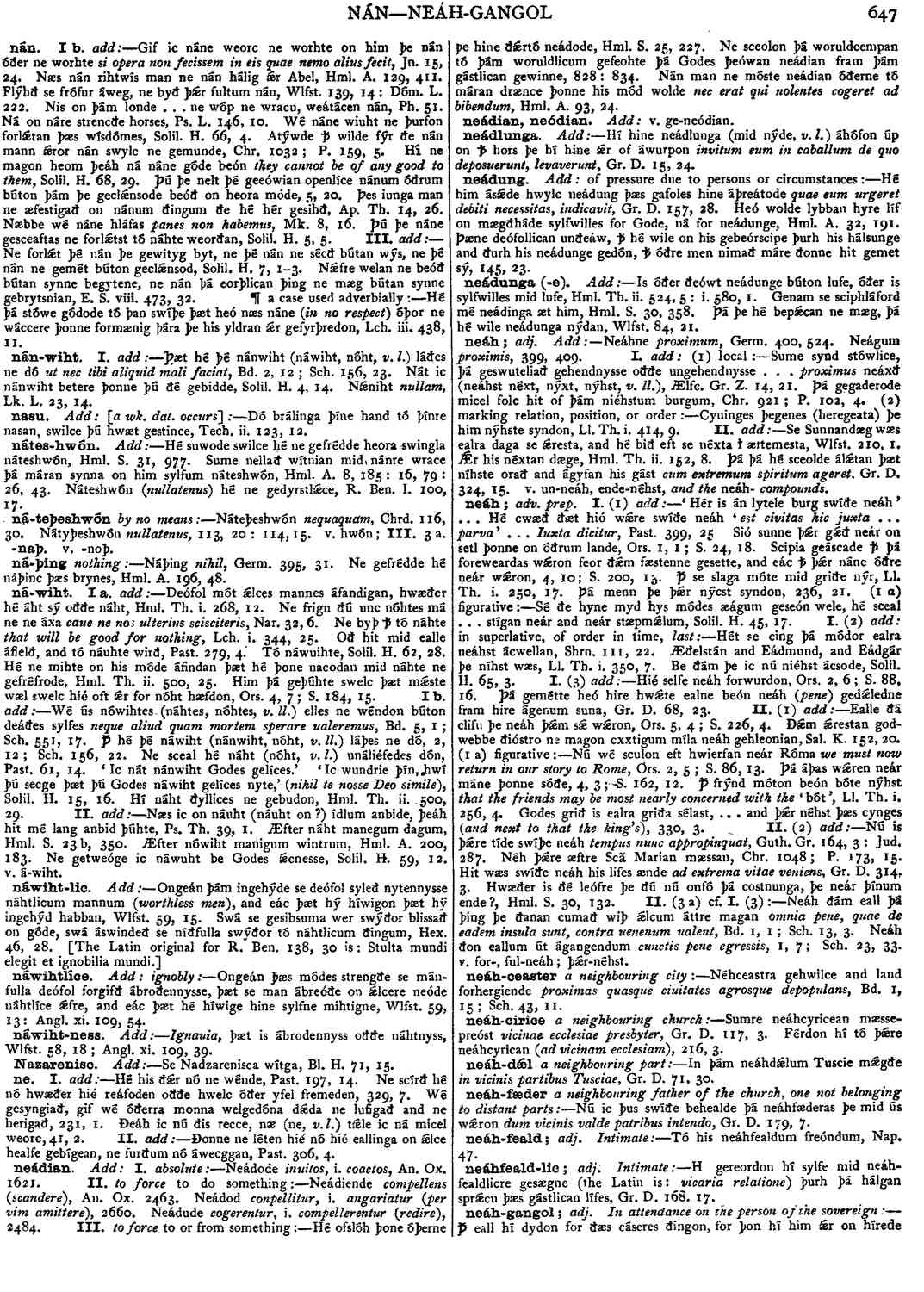neáh
- adjective
-
Neáhne
proximum,
- Germ. 400, 524.
-
Neágum
proximis,
- 399, 409.
-
Sume synd stówlice, þá geswuteliað gehendnysse oððe ungehendnysse . . .
proximus neéxð (neáhst néxt, nýxt, nýhst, v.ll. ],
- Ælfc. Gr. Z. 14, 21.
-
Þá gegaderode micel folc hit of þám niéhstum burgum,
- Chr. 921 ; P. 102, 4.
-
Cyninges þegenes (heregeata) þe him nýhste syndon,
- Ll. Th. i. 414, 9.
-
Se Sunnandæg waes ealra daga se ǽresta, and hé bið eft se néxta ł ættemesta,
- Wlfst. 210, I. Ǽr
-
Þá þá hé sceolde álǽtan þæt níhste orað and ágyfan his gást
cum extremum spiritum ageret.
- Gr. D. 324, 15.
Bosworth, Joseph. “neáh.” In An Anglo-Saxon Dictionary Online, edited by Thomas Northcote Toller, Christ Sean, and Ondřej Tichy. Prague: Faculty of Arts, Charles University, 2014. https://bosworthtoller.com/55796.
Checked: 0